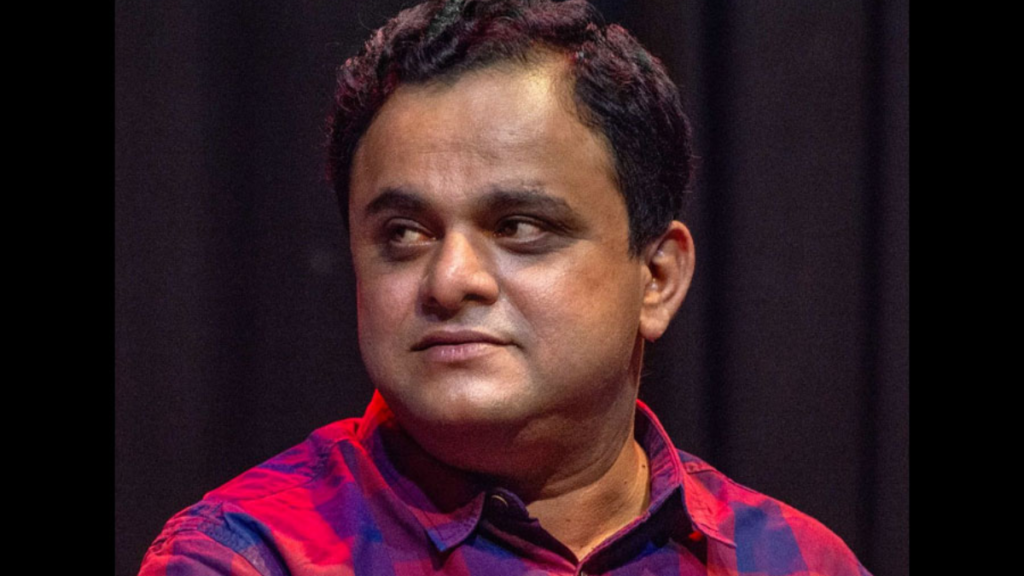Education minister Bratya Basu has severely criticised the Central government for allegedly showing discriminatory behavior against West Bengal by not including all the state’s state-aided universities in the final selection list of institutions picked under the Union Ministry of Education’s ambitious Partnership for Accelerated Innovation and Research (PAIR) programme. In spite of numerous institutions in the state becoming eligible, no one was considered by the Centre for the Hub and Spoke model in the final selection.
Basu vented his anger in public by posting on social media platform X, where he accused the Union government of sidelining West Bengal’s worthy educational institutions, especially Jadavpur University (JU), which had originally been shortlisted as a likely “Hub” institution. “A number of universities in our state are qualified to be Hub and Spoke institutions. But none of them have been identified.”. We totally condemn the discriminatory approach of the Union government towards West Bengal,” Basu said, annexing the selection lists below.
The PAIR initiative is designed to enhance innovation, research, and mentorship via a Hub and Spoke strategy with the most excellent institutions being the research Hubs that lead a cluster of six Spoke institutions in their respective region. Each Hub institution can receive as much as ₹30 crore as central funding, thus providing substantial academic and infrastructural support for their corresponding partner Spoke institutions.
Education minister Bratya Basu was especially aggrieved that JU, which is one of India’s top universities in both academic achievement and research, had been left out. JU had made it to the first round as one of 30 possible Hubs and had shown its capabilities twice — initially in Delhi and later in Bangalore — to prove that it was ready for the leadership role. JU’s presentation addressed three areas of specialization: artificial intelligence, advanced materials, and environmental sustainability.
But in the last announcement made earlier this week, JU was not mentioned. Instead, NIT Rourkela has been appointed as the Hub for the Eastern India region — an appointment that had been eagerly looked forward to by the JU academic fraternity.
Education minister Bratya Basu too was disappointed with the exclusion of Calcutta University, which had been shortlisted as a Spoke institution to work under the mentorship of JU. The other proposed Spoke institutions were Burdwan University, Kalyani University, Sidho Kanho University, Sikkim University, and the University of Meghalaya — all of whom were left out in the final selection.
At an interview, JU physicist Professor Partha Pratim Roy, who was among the JU team members to present their projects in Bangalore during March, repeated Basu’s words. “It is sad that JU, despite its impressive showing in national and international rankings, was not regarded as a Hub institution,” Roy said. He also highlighted the university’s pioneering positions in cutting-edge research areas that best suited the goals of the PAIR programme.
Education minister Bratya Basu highlighted that JU’s exclusion can’t be explained on merit considerations. The university finished second among state public universities and ninth overall under the university category in the National Institutional Ranking Framework (NIRF) 2024. Having consistently performed at the top level, JU still suffers from what the state views as a willful pattern of exclusion. The university had previously also been denied the coveted Institute of Eminence tag, though it was shortlisted.

Education minister Bratya Basu: Is the exclusion of state-funded Bengal universities from PAIR due to political prejudice or bureaucratic error?
This query remains alive in West Bengal’s education circle with several stakeholders considering this part of a larger phenomenon of institutional neglect. One of the senior officials of the West Bengal education department said the refusal to grant recognition to JU and other state-aided colleges is “not only disappointing but raises serious questions about the fairness of central government policies towards non-BJP ruled states.”
JU’s exclusion has also been a disappointment to future researchers and teachers throughout Bengal’s academic community, who had hoped that the Hub status would provide new avenues for innovation and cooperation. For the PAIR program, Hubs have an important role in giving academic leadership, mentoring six connected institutions, and enabling cross-disciplinary research initiatives that are key to India’s development in technology and innovation.
State-aided universities of Bengal were not new to troubles, and they had usually been doing well in spite of the lack of funds and political difficulties. The PAIR programme was regarded as a badly needed shot in the arm, and its rejection has only served to heighten the feeling of being left out of national initiatives.
Though Union Minister of State for Education Sukanta Majumdar, also from Bengal, has not spoken about the issue yet, the Central government’s silence has been read by most as de facto approval of what Basu and other critics term a politically driven move.
Education minister Bratya Basu has asked the Union government to review its decision and include deserving state-aided institutions such as Jadavpur University in subsequent rounds of the PAIR programme. He also hinted at potential alternative state initiatives to make up for the lost opportunity if the Centre persists with what he called “systematic marginalisation.”
The political subtext to this move is difficult to ignore, particularly at a time approaching a general election cycle when state–centre relationships and education policy are going to come under sharp examination. The state’s governing Trinamool Congress has consistently accused the Centre led by the BJP of withholding the state’s due share from national schemes, and the recent exclusion from the PAIR scheme has added only to the fire.
For the time being, the academic community of West Bengal holds its breath to know if they will be heard on their demands for recognition or if, as Education minister Bratya Basu foretells, the state will have to go solo in developing innovation and research in its universities.
ALSO READ
Oxford Business College Student Loan Ban After Investigation